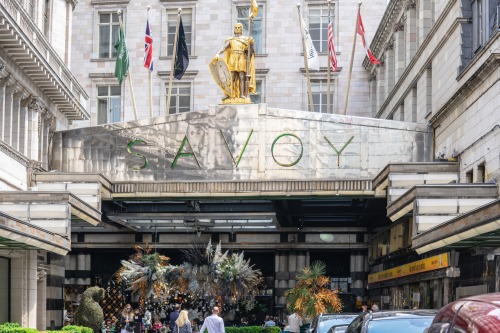History of women working in Sheffield's steelworks

We find out about the women who took over Sheffield’s steelworks during World War II
When we think of war heroes, we think of the soldiers on the front line risking their lives, the decision-makers, or the nurses in field hospitals. Rarely do we think of the women who slaved away in Sheffield’s steelworks, but their roles were not only highly dangerous, they were vital to the war efforts – they made the ammunition that kept many of our soldiers alive and helped bring the war to an end.
In 2011, four women decided to take action. They had worked in Sheffield’s factories during the war and, with the encouragement of a local journalist who identified their incredible yet rarely told tales, decided to come forward on behalf of all their fellow steelworkers. They approached Councillor Julie Dore who decided to embark on an expensive project in order to recognise their work.
‘The women made a serious contribution to the war effort, keeping the steel industries and the factories going and making world-class artillery and armour,’ says Julie. They weren’t given a choice, they were pulled away from their normal occupations which could have been in retail or hospitality but most likely within the home as housewives, and told they had to go into the city’s dangerous factories and work long hours, six days a week.
Throughout the war they slaved away in these unfamiliar and dangerous surroundings. ‘They wouldn’t have had much training,’ says Julie. As a result there were frequent burns, strains and other long-term injuries. ‘One of the women who came forward said she never properly recovered from back injuries,’ says Julie.
The work was far removed from anything they had been taught, or ever expected to be doing. If you had a fear of heights, you had to grin and bear it because typical tasks included things like climbing up 20ft ladders to use forklifts. ‘They had to pick up the steel at one end and somebody else had to at the other, then they’d put it in the heat and bash it,’ explains Julie. ‘Some were up on the forklift trucks moving it about – it was very hard manual labour.’
When the war came to an end the men returned and the women were told to go back to their previous occupations without so much as a ‘well done’. And decades have gone by without anyone really giving much thought to these women, until now.
The four ex-factory workers came forward in 2011 to ask for the most fitting of tributes – a steel statue. As Julie immediately identified, not only would it need planning permission, it would need to fit in with its surroundings and it was going to cost money. She did some calculations and decided on a budget of £28,000, the women then worked with nationally renowned artist Martin Jennings (who created the John Betjeman statue in St Pancras Station in London) to design it.
‘They wanted it to reflect the friendships that they created while working together,’ says Julie. ‘Although it was extremely hard, dirty, dangerous and challenging work, they did build up friendships. So the statue that was designed is two women arm-in-arm wearing the outfits that they wore while in the factories.’ It also needed to be life size and cast in bronze. As it turns out, the cost of executing this type of thing exceeded the budget ever so slightly. It would cost a grand total of £150,000.
So in 2012 the Women of Steel campaign was officially launched, and over three years on they’ve raised more than enough and finally commissioned the statue. ‘We’re well in excess of £150,000,’ says Julie. The campaign garnered a lot of interest, they held fundraising events such as concerts and charity bowls but received a surprising amount of the budget simply from online donations. ‘It’s the people’s statue really,’ says Julie.
It will be placed at Barker’s Pool in the centre of Sheffield, and is due to be unveiled some time this year, but the celebration doesn’t stop here. A production company are in the process of developing a musical about the women. It will be called ‘The Canary Girls’ because the chemicals they were using in the ammunition factories actually turned their skin yellow – thus they got given this catchy nickname.
We’re more than excited to see these unsung war heroes finally getting the recognition they deserve.







